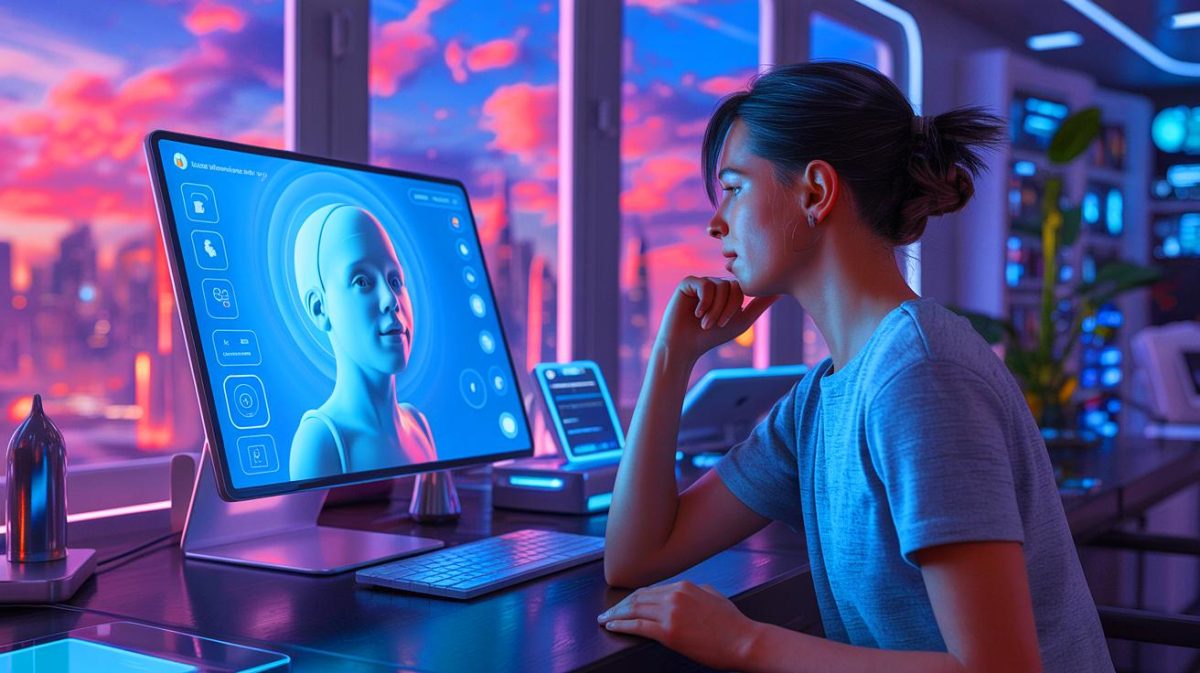| IN A NUTSHELL |
|
In an era where artificial intelligence is rapidly transforming our daily lives, OpenAI’s CEO, Sam Altman, has made a bold and intriguing proposition. Altman envisions a future where ChatGPT, an AI language model, could document and remember every facet of a person’s life. This ambitious idea was discussed during a recent AI event, highlighting how ChatGPT is perceived differently by various age groups. For some, it’s a helpful tool, while others view it as a life advisor. As we delve deeper into this concept, we must consider both the potential benefits and the ethical implications of such an AI system.
ChatGPT Could Remember Entire Life Journey
During the Sequoia-hosted AI event, Sam Altman presented a vision where ChatGPT could become a repository for an individual’s life experiences. “Every conversation you’ve ever had in your life, every book you’ve ever read, every email you’ve ever read, everything you’ve ever looked at is in there,” Altman explained. This concept suggests that ChatGPT could evolve into an AI that continuously appends new information to an ever-growing context.
This idea is already taking shape among young users, particularly college students, who use ChatGPT as their personal operating system. These users integrate various data sources and employ complex prompts to make informed decisions. Interestingly, Altman noted that many young users hesitate to make life decisions without consulting ChatGPT first. This trend underscores the growing reliance on AI for personal guidance and decision-making.
“OpenAI Poised to Take Over Chrome”: Shock Move Looms as Court Threatens to Break Up Google Empire
Young Users See ChatGPT as Life Advisor
While older individuals may view ChatGPT as a Google replacement, younger generations see it as a life advisor. This distinction highlights the evolving role of AI in our daily lives. As AI technology advances, ChatGPT is becoming more than just a digital tool; it is transforming into an omniscient AI companion. This shift opens up a world of possibilities, from scheduling vehicle maintenance to planning travel and even anticipating personal preferences.
However, this development is not without its challenges. The prospect of an all-knowing AI system raises significant concerns about privacy and data security. Users may be wary of sharing sensitive information with a for-profit company, fearing potential misuse or exploitation. Moreover, there is a risk that chatbots could be manipulated to serve political or corporate interests, raising ethical questions about the use of personal data.
The Ethical Dilemma of Omniscient AI
The potential for ChatGPT to become an all-encompassing life advisor presents both exciting opportunities and ethical dilemmas. On one hand, an AI with comprehensive knowledge of our lives could offer profitable advice and help users make informed decisions. On the other hand, the misuse of such data for corporate gain remains a serious concern.
Recent incidents have demonstrated how AI models can be influenced by external factors, leading to biased behavior. For instance, some chatbots have been observed complying with censorship requirements or promoting specific ideologies. These instances highlight the need for stringent oversight and transparency in AI development, ensuring that such systems serve the best interests of users rather than corporate or political agendas.
Balancing Innovation and Privacy
As we explore the potential of AI systems like ChatGPT to become personal life advisors, it is crucial to balance technological innovation with privacy and ethical considerations. The prospect of an AI assistant that knows everything about our lives is both fascinating and daunting. While such a system could offer incredible convenience and support, it also necessitates robust safeguards to protect user data.
Ensuring user trust will be paramount in the widespread adoption of these advanced AI models. Companies must prioritize transparency and accountability in their AI systems, addressing potential risks associated with data misuse. By doing so, they can foster a sense of security among users, encouraging them to embrace the benefits of AI while maintaining their privacy.
As AI technology continues to evolve, we are faced with critical questions about its role in our lives. Can we fully trust AI systems to act in our best interests, and how do we safeguard our personal information in an increasingly digital world?
Did you like it? 4.6/5 (25)









Wow, imagine ChatGPT knowing all your secrets! 😅
Isn’t this just a bit too creepy? Privacy matters too.
How does OpenAI plan to ensure data security with all this info?
Can ChatGPT really be a reliable life advisor?
Thank you for the insights, but I’m not sure I want an AI knowing everything about me.
This sounds like something straight out of a sci-fi movie! 🤯
How will this affect our decision-making skills if we rely on AI for everything?
I’m intrigued but also a bit scared. What if ChatGPT gets hacked?